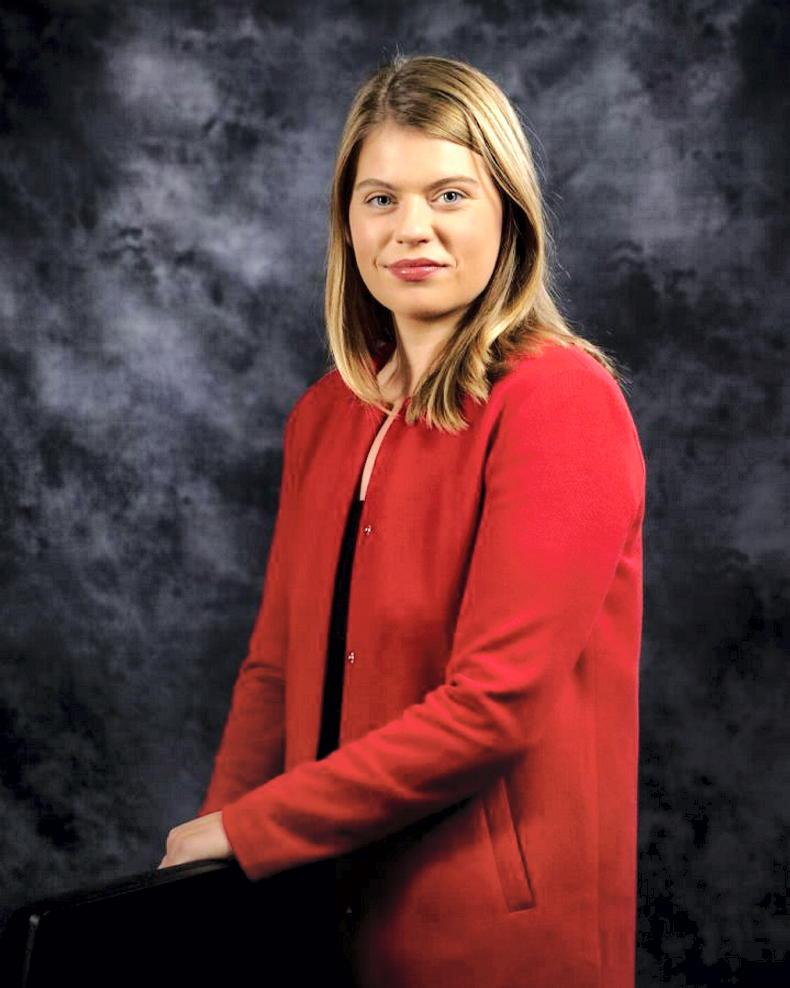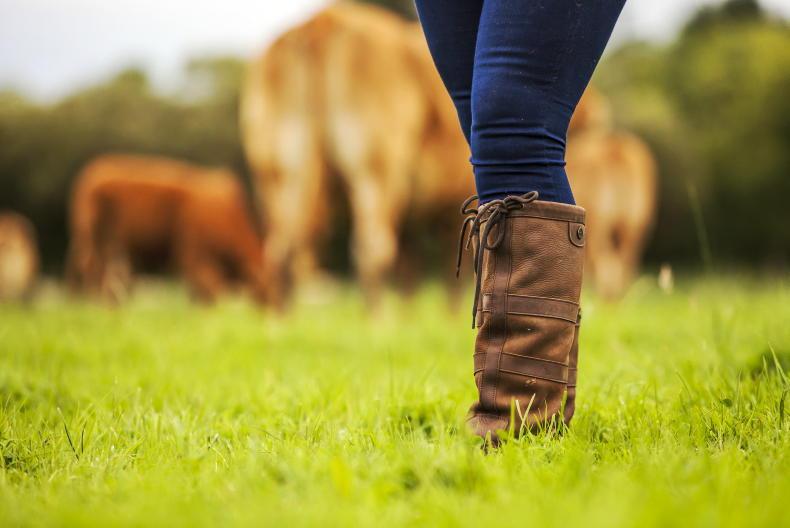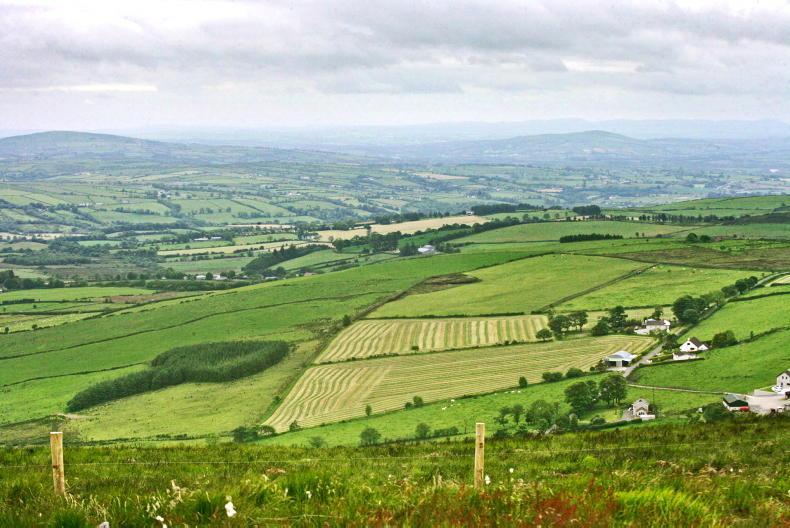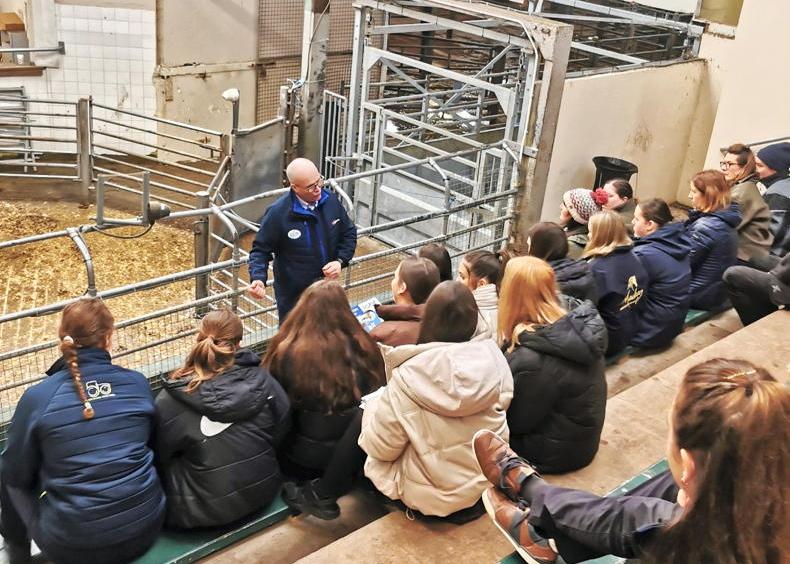February 1, St Brigid’s Day, marked the launch of the National Dialogue on Women in Agriculture. It is a fitting date considering the story of St Brigid remains relevant today when it comes to the relationship between women and landownership in Ireland.
As legend goes, the King of Leinster owned the land and St Brigid wanted to build a convent. She asked for as much land as her cloak would cover. The King agreed and through prayer, a cloak and a woman at each corner, the cloak grew and grew.
Land in Ireland today is still predominantly in male ownership. There were different reasons for this: the patriarchal retention of the surname, the fact that farming was much more physically demanding for previous generations and the roles that society assigned to men and women.
Now, despite gender balance increasingly being achieved in most sectors, the rate of female farm ownership in Ireland is 13%.
Tradition dictates
Our research findings show that there are a myriad of social, cultural, legal and financial reasons for the current low rate of female farm ownership.
However, a word that continuously keeps coming up is that of ‘tradition’ – this is the primary reason posited for the current low rate of female farm owners. The research findings suggest that there are different reasons as to why daughters or wives are not on the legal title.
For daughters, the primary issue is the often-automatic succession preference in favour of a son in part due to the patriarchal practice of retaining the surname.
Whereas, for wives, the primary issue is the fear of divorce and tax issues.
Machinery and technology are key enablers for females in farming. However, the cost and investment required is a problem.
In terms of recognising the role women play on farms, many believe that while both names being on the legal title to the land is the preferable solution, both names being on the herd number, the farm bank account or forming a farm partnership would also be a step in the right direction.
Future careers
In terms of the next generation, it is looking positive in that many females are going to agricultural college with the expectation of inheriting or owning land.
However, farmland typically changes hands when it is inherited on death of the owner, and, therefore, it can take a long time to see changes in ownership patterns; it will take time for the national figures and statistics to change and reflect a less patriarchal culture.
Our research finds the farming community in the midst of a transition. Farming is not impervious to change though certain traditions remain strongly ingrained.
Females are farming but too often they are not owners of the farms they work on. For the next generation, succession decisions based on interest and ability are crucial if we are to move the dial on gender balance in this sector.

Mary Curtin is completing a PhD in the University of Limerick on female farm ownership and has spent over three years examining the topic.
Women have been farming behind the scenes in many cases and many now want official recognition, and to share control of the assets.
Action to achieve change in ownership
There are different ways that female farm ownership can be encouraged. It is accepted that it is difficult to legislate for behaviour. Social and cultural norms take a long time to change.
However, the media can play an important role in normalising female farmers, showcasing them as equal to their male counterparts.
Education is also seen as a key enabler. It is suggested that actions like those seen with (science, technology, engineering and maths) are required in agriculture. Looking at this issue among primary and secondary school students would be useful.
There are other steps that could be taken in addition to or towards putting females’ names on land.
Many farms are now moving towards company structures and partnerships are becoming a common model for encouraging the proper involvement of the next generation in farming.
Company structures often mean spouses are named as secretaries and directors as well as partners in partnerships, especially now with the benefits for young people and females after the 2022 budget.
An area in need of reform is taxation. One potential change would be that on transfer of land to a child, parents could transfer to their child and the child’s spouse as if it were only to their child. Currently, a child’s spouse falls into a different category than a child, which would mean a significant tax bill if parents transferred to the daughter-in-law or son-in-law at the same time as the child.
Legislating for prenuptial agreements could also help overcome significant issues in the farming community – the fear of divorce and the impact of such a divorce on the farm and prenuptial agreements could also help challenge the patriarchal norm in farming communities by giving the marrying in spouse a say and a voice from the outset.
However, there is no-one-size fits all for prenuptial agreements. The option should at least be available for couples. Therefore, an important recommendation is that the legislature bring in laws in relation to the enforceability of prenuptial agreements in Ireland so that people can plan and have greater autonomy and certainty over their own life and their farm.
There are major issues being faced in farming today, from climate change to economic viability and increasing the number of female farmers and farm owners is critical to bringing another perspective to debates on these issues.
Read more
Mary Coughlan wants a results based dialogue - "No talking shop"
Women only groups not for you? Great - but check your privilege before judging
February 1, St Brigid’s Day, marked the launch of the National Dialogue on Women in Agriculture. It is a fitting date considering the story of St Brigid remains relevant today when it comes to the relationship between women and landownership in Ireland.
As legend goes, the King of Leinster owned the land and St Brigid wanted to build a convent. She asked for as much land as her cloak would cover. The King agreed and through prayer, a cloak and a woman at each corner, the cloak grew and grew.
Land in Ireland today is still predominantly in male ownership. There were different reasons for this: the patriarchal retention of the surname, the fact that farming was much more physically demanding for previous generations and the roles that society assigned to men and women.
Now, despite gender balance increasingly being achieved in most sectors, the rate of female farm ownership in Ireland is 13%.
Tradition dictates
Our research findings show that there are a myriad of social, cultural, legal and financial reasons for the current low rate of female farm ownership.
However, a word that continuously keeps coming up is that of ‘tradition’ – this is the primary reason posited for the current low rate of female farm owners. The research findings suggest that there are different reasons as to why daughters or wives are not on the legal title.
For daughters, the primary issue is the often-automatic succession preference in favour of a son in part due to the patriarchal practice of retaining the surname.
Whereas, for wives, the primary issue is the fear of divorce and tax issues.
Machinery and technology are key enablers for females in farming. However, the cost and investment required is a problem.
In terms of recognising the role women play on farms, many believe that while both names being on the legal title to the land is the preferable solution, both names being on the herd number, the farm bank account or forming a farm partnership would also be a step in the right direction.
Future careers
In terms of the next generation, it is looking positive in that many females are going to agricultural college with the expectation of inheriting or owning land.
However, farmland typically changes hands when it is inherited on death of the owner, and, therefore, it can take a long time to see changes in ownership patterns; it will take time for the national figures and statistics to change and reflect a less patriarchal culture.
Our research finds the farming community in the midst of a transition. Farming is not impervious to change though certain traditions remain strongly ingrained.
Females are farming but too often they are not owners of the farms they work on. For the next generation, succession decisions based on interest and ability are crucial if we are to move the dial on gender balance in this sector.

Mary Curtin is completing a PhD in the University of Limerick on female farm ownership and has spent over three years examining the topic.
Women have been farming behind the scenes in many cases and many now want official recognition, and to share control of the assets.
Action to achieve change in ownership
There are different ways that female farm ownership can be encouraged. It is accepted that it is difficult to legislate for behaviour. Social and cultural norms take a long time to change.
However, the media can play an important role in normalising female farmers, showcasing them as equal to their male counterparts.
Education is also seen as a key enabler. It is suggested that actions like those seen with (science, technology, engineering and maths) are required in agriculture. Looking at this issue among primary and secondary school students would be useful.
There are other steps that could be taken in addition to or towards putting females’ names on land.
Many farms are now moving towards company structures and partnerships are becoming a common model for encouraging the proper involvement of the next generation in farming.
Company structures often mean spouses are named as secretaries and directors as well as partners in partnerships, especially now with the benefits for young people and females after the 2022 budget.
An area in need of reform is taxation. One potential change would be that on transfer of land to a child, parents could transfer to their child and the child’s spouse as if it were only to their child. Currently, a child’s spouse falls into a different category than a child, which would mean a significant tax bill if parents transferred to the daughter-in-law or son-in-law at the same time as the child.
Legislating for prenuptial agreements could also help overcome significant issues in the farming community – the fear of divorce and the impact of such a divorce on the farm and prenuptial agreements could also help challenge the patriarchal norm in farming communities by giving the marrying in spouse a say and a voice from the outset.
However, there is no-one-size fits all for prenuptial agreements. The option should at least be available for couples. Therefore, an important recommendation is that the legislature bring in laws in relation to the enforceability of prenuptial agreements in Ireland so that people can plan and have greater autonomy and certainty over their own life and their farm.
There are major issues being faced in farming today, from climate change to economic viability and increasing the number of female farmers and farm owners is critical to bringing another perspective to debates on these issues.
Read more
Mary Coughlan wants a results based dialogue - "No talking shop"
Women only groups not for you? Great - but check your privilege before judging









SHARING OPTIONS